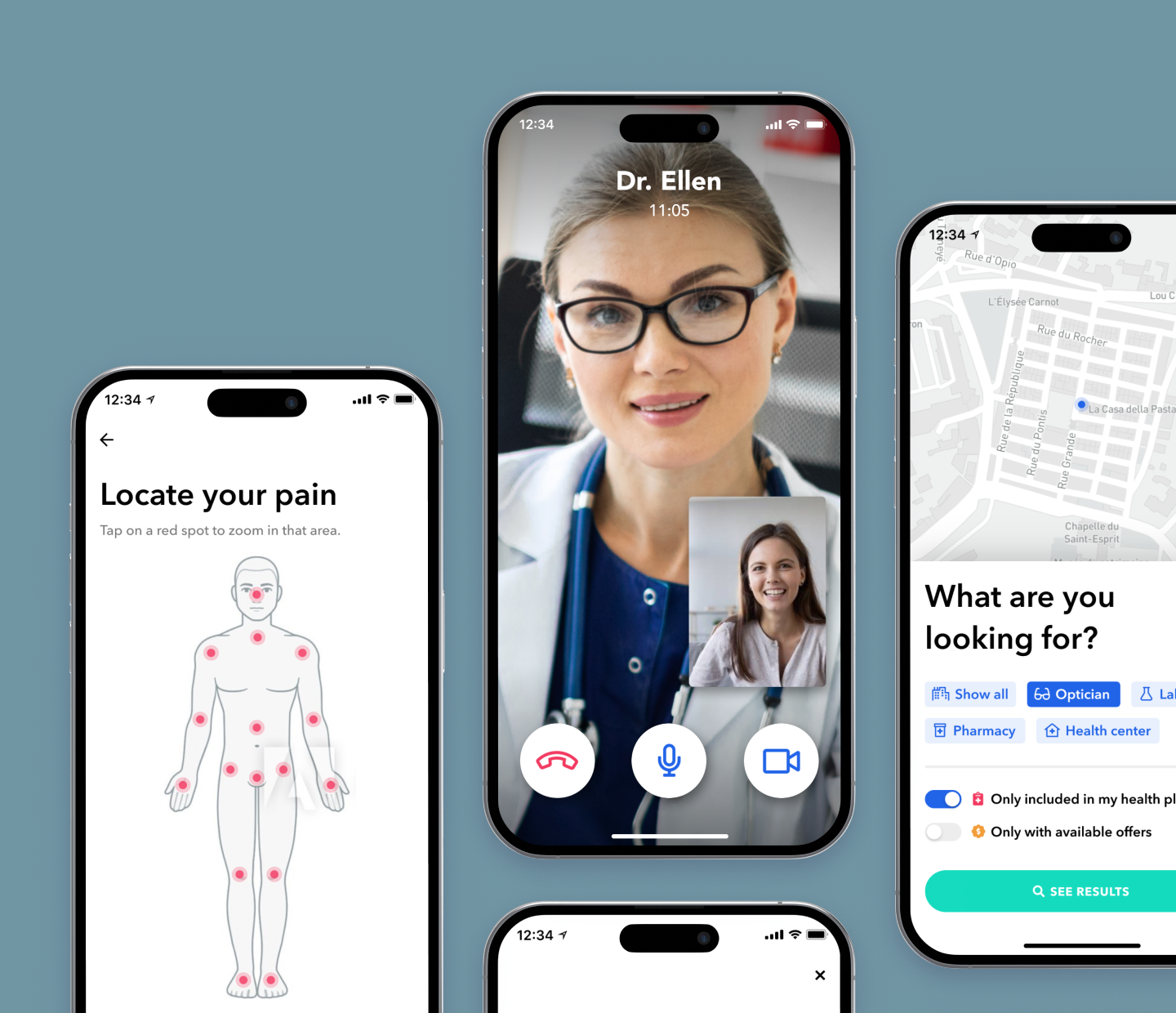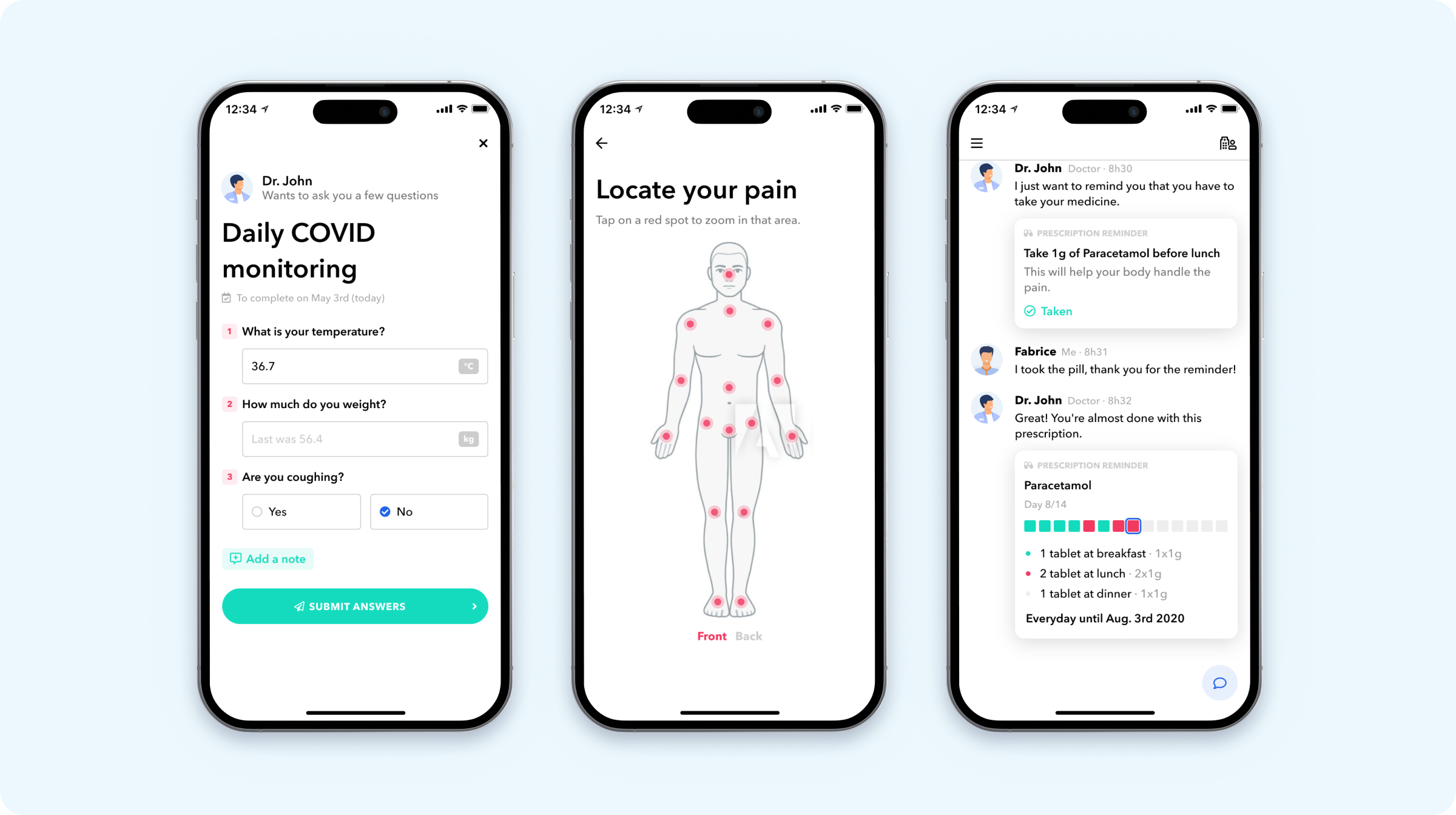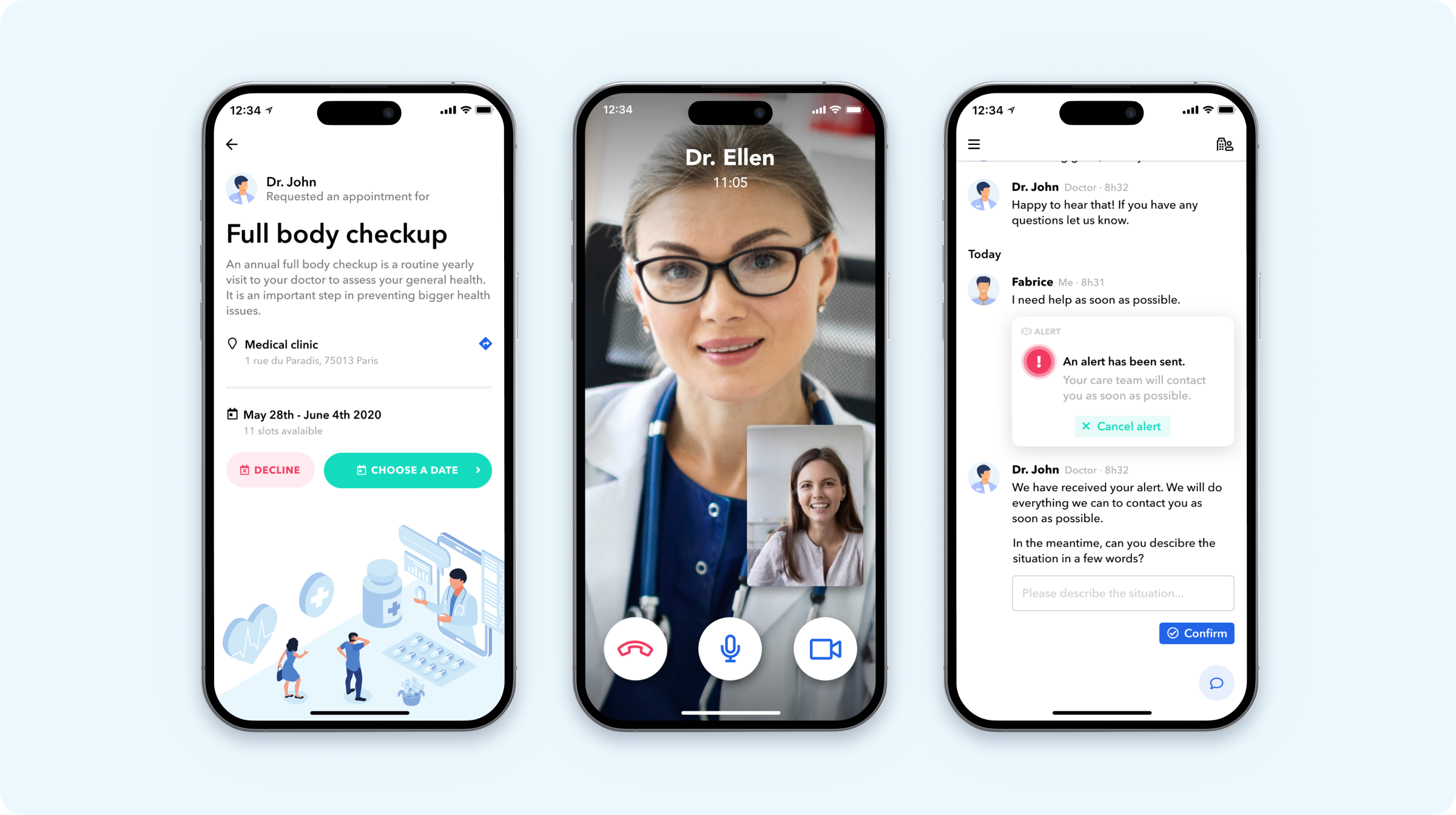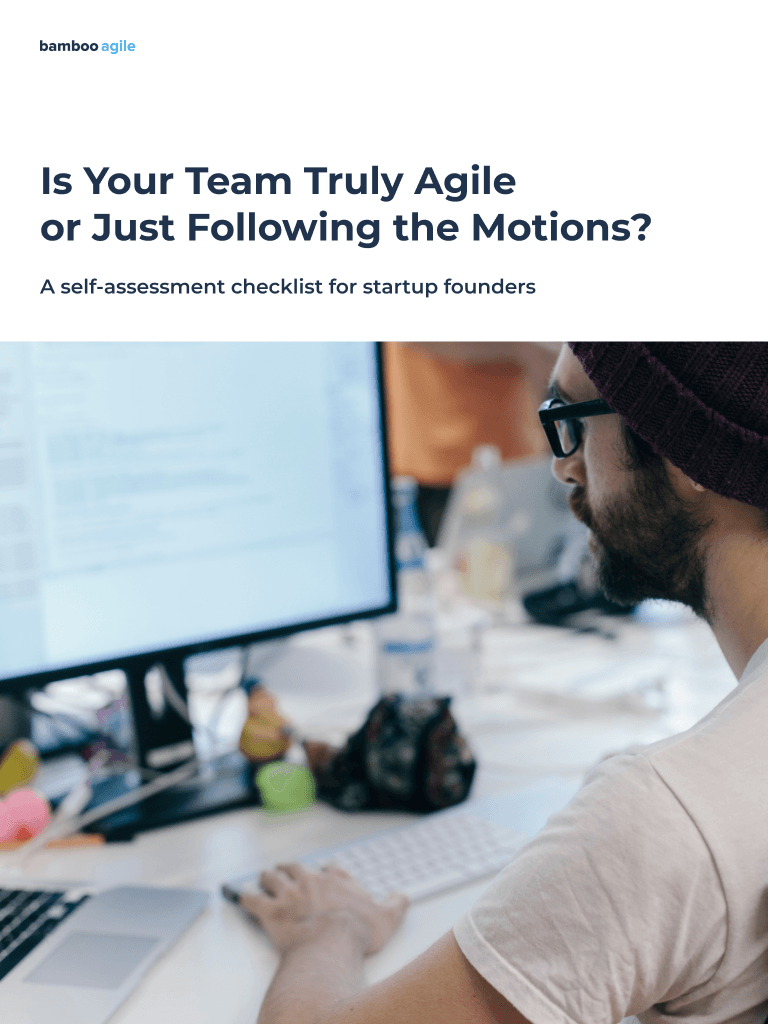Bamboo Agile was tasked with developing an AI-powered mobile application that would help its users diagnose COVID-19 and book doctor appointments.
About the Project
Overview:
Challenge
A healthcare organization from France wanted to create a software that would target low-income regions, first and foremost. By letting potential patients diagnose the disease on their own, the app would help take the load off hospitals, as well as make medical help more accessible to those who need it most.
Solution
Bamboo carried out pre-development research, designed, and delivered an AI-based mobile app that helped people determine if they had coronavirus from the safety of their homes. The app also lets users book on-site or remote appointments with doctors from their local clinics.
The solution is designed to be integrated with select health clinics. Said clinics sync their data with the system and then provide software access to their staff and patients. The app was first set to launch in Brazil, with the intention to expand to more countries later on.
Technologies we used:
Swift, Kotlin


Key Features
This is the core feature of the application. To determine if they have coronavirus, users need to take a smart questionnaire in the form of a conversation with an AI bot. The questionnaire then adapts and changes depending on the user’s answers as the test progresses.
If the results show that the user is indeed sick, the bot offers to call a doctor or to set up an appointment at the clinic, if necessary. Generally speaking, this feature can be used to diagnose a huge range of diseases in the future, not just COVID-19.
Development
The team of Bamboo consisted of 1 iOS developer, 1 Android developer, a Project Manager, a Business Analyst, and (later) a UX designer. The development of an app was split between two teams: backend development was done by a third party, while Bamboo Agile was responsible for the mobile part of the solution.
The development began with a discovery phase and a requirements analysis. Bamboo Agile helped the client create edge cases, develop app vision, and delivered detailed documentation for the whole solution.
The client had begun working on some mobile designs before starting collaboration with our team and had a lot of ideas regarding the application. We helped refine those designs and offered a lot of our own suggestions on how to turn their concepts into reality.
Our progress was highly dependent on the backend provided by the third-party team, which slowed down our development at times. But we managed to circumvent that: we organised our workflow in a way that allowed us to develop components that weren’t yet implemented in the backend.
We also remained flexible and did our best to account for changing client requirements. The application expanded a lot over the course of its development, but we’ve managed to scale our resources accordingly.
We consulted the client on the benefits of utilising ready-made solutions and services to make the development process faster and more cost-effective – for example, using an API for the text chat and video calls instead of coding them from scratch. This meant a lot of research to find the most reliable chat API vendors.
We also decided to employ Amazon Cloud services. Our team was already well-versed in Amazon functionality, and using their Cloud for storage seemed like the obvious choice for streamlining the development process.
Results
We successfully designed a patient remote monitoring app for iOS and Android that incorporated a smart chatbot, scheduling features, and other functionality.
Despite the challenges that arose from the development being split between two teams, Bamboo Agile managed to optimise the workflow and continuously provide high quality healthcare app development services over the course of the collaboration.







